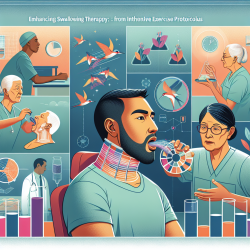Introduction
The COVID-19 pandemic has undeniably reshaped the educational landscape, leaving an indelible mark on student well-being. As students transitioned back to in-person learning in the fall of 2020, a new wave of challenges emerged, particularly concerning their mental health. The study titled COVID-19 and Student Well-Being: Stress and Mental Health during Return-to-School sheds light on these challenges and offers insights that practitioners can leverage to enhance their support strategies.
Key Findings
The research involved over 2,000 Alberta students aged 12-18, revealing that while most students coped adequately, a significant portion experienced stress levels above critical thresholds. Notably, females and older adolescents reported higher stress indicators compared to their male and younger counterparts. This stress was closely linked to behavioral concerns, such as conduct problems and cognitive inattention.
Implications for Practitioners
Practitioners in the field of education and mental health can draw several actionable insights from this study:
- Targeted Interventions: Given the heightened stress levels among older adolescents and females, targeted interventions are crucial. Practitioners should consider developing gender-specific and age-appropriate support strategies to address these disparities.
- Universal Support: While targeted interventions are essential, universal support mechanisms should not be overlooked. Schools can implement programs that promote resilience and coping skills for all students, ensuring a supportive environment for everyone.
- Monitoring and Evaluation: Continuous monitoring of student stress and mental health is vital. Utilizing tools like the Behavior Intervention Monitoring Assessment System (BIMAS-2) can help practitioners identify at-risk students and tailor interventions accordingly.
Encouraging Further Research
The study underscores the importance of ongoing research to understand the long-term impacts of COVID-19 on student mental health. Practitioners are encouraged to engage in or support further research initiatives that explore these dynamics, contributing to a more comprehensive understanding of student well-being in post-pandemic contexts.
Conclusion
The COVID-19 pandemic has highlighted the critical need for robust mental health support systems within educational settings. By implementing the insights from this research, practitioners can better support students as they navigate the complexities of post-pandemic life. To delve deeper into the original research, please follow this link: COVID-19 and Student Well-Being: Stress and Mental Health during Return-to-School.










